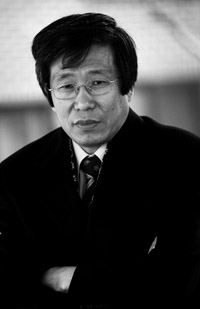 By Kim Seong-kon, Professor of English Literature
By Kim Seong-kon, Professor of English LiteratureRecently I was deeply moved by a letter from my former student who has returned to Beijing.
She wrote:"This is the Lunar New Year holiday season in China and I am busy sorting out various presents from those who worked for my father-in-law when he was the CEO of a company in Beijing. It has been seven years since he retired, and yet presents from his former employees keep pouring in."
For seven long years, these people have not forgotten their former boss and send a token of their gratitude every year.
In Korean society, however, things are a bit different. The moment you step down from your CEO position, for example, presents from your former employees will immediately cease. Suddenly, there are no more phone calls and no more visitors. People will no longer seem to need you or revere you and eventually you feel neglected and forgotten.
You may wonder:"What then were the many presents that used to pile in the porch of my house for? Were they not an expression of gratitude?"
Perhaps that is why we are reluctant to resign from a post we have been holding, especially if it is a politically influential one. This is also why we want to marry our children off before we retire. We are afraid that that being a retiree soon, we will lose power and be regarded as a useless man and thus few people would show up at our son's or daughter's wedding. If true, it would be so cruel.
A while ago, I was also deeply moved by another occasion involving a Japanese professor. Once I invited Professor Sato Yoshiaki from the University of Tokyo to an international seminar sponsored by the American Studies Institute, of which I was the director. Since he was accompanied by his wife, I arranged a double room for them. I completely forgot about this, and yet obviously, Professor Sato did not.
When I visited Tokyo some time ago, accompanied by my family, he was determined to return the favor. He came all the way to the airport to meet me, reserved two luxury rooms for us at a five-star hotel and paid for them personally. Then he volunteered to be a tour guide for us and treated us generously at fancy Japanese restaurants.
The above two incidents made me reflect on my ungrateful behavior. So far, I have received so many favors from other people, and yet I have neither expressed gratitude properly nor returned the favor fully.
I am not alone in this. There are times that I strongly recommended someone to a position of assistant professor. Other times, I arranged a scholarship or a grant for needy students and scholars. Once appointed a faculty or selected as a grantee, however, they take it for granted and do not seem truly grateful for my help.
Those who had come to me for help suddenly stopped visiting me, as if I were no longer useful to them. Worse, when I asked for help, they callously declined my request, saying,"Sorry I can't help you. I'm so busy these days." But I, too, was busy when they asked for help!
Sometimes, I wonder if Koreans have a short memory. We seem to easily forget the favors we have received from others. For example, we no longer seem to remember the timely U.S. intervention in the Korean War that saved our country from falling to a communist country. We also seem to have forgotten the astronomical financial assistance we received from the United States during the poverty-stricken postwar period.
Perhaps that is why anti-American sentiment can become comfortably fashionable in today's South Korea. We mutter"Americans did it for their own national interest." If that is indeed true, we still should be grateful for their help and try to return the favor.
If you still want to be a stout anti-Americanist, that's fine. But you should be grateful at least to the 16 countries that dispatched their young men to die for the freedom of South Korea during the Korean War. Embarrassingly, however, only few Koreans seem to remember the names of the countries that helped us in times of crisis. We often forget the fact that had it not been for the invaluable help from those friendly nations, today's economic prosperity of South Korea could not have been possible.
As the former U.S. congressman Kim Chang-jun recently suggested, we should now return the favor by helping underdeveloped countries and promoting world peace. The Korea International Cooperation Agency has been doing this splendidly, and we should try to expand it to a nationwide movement. That will surely prove that we are not ungrateful after all.

